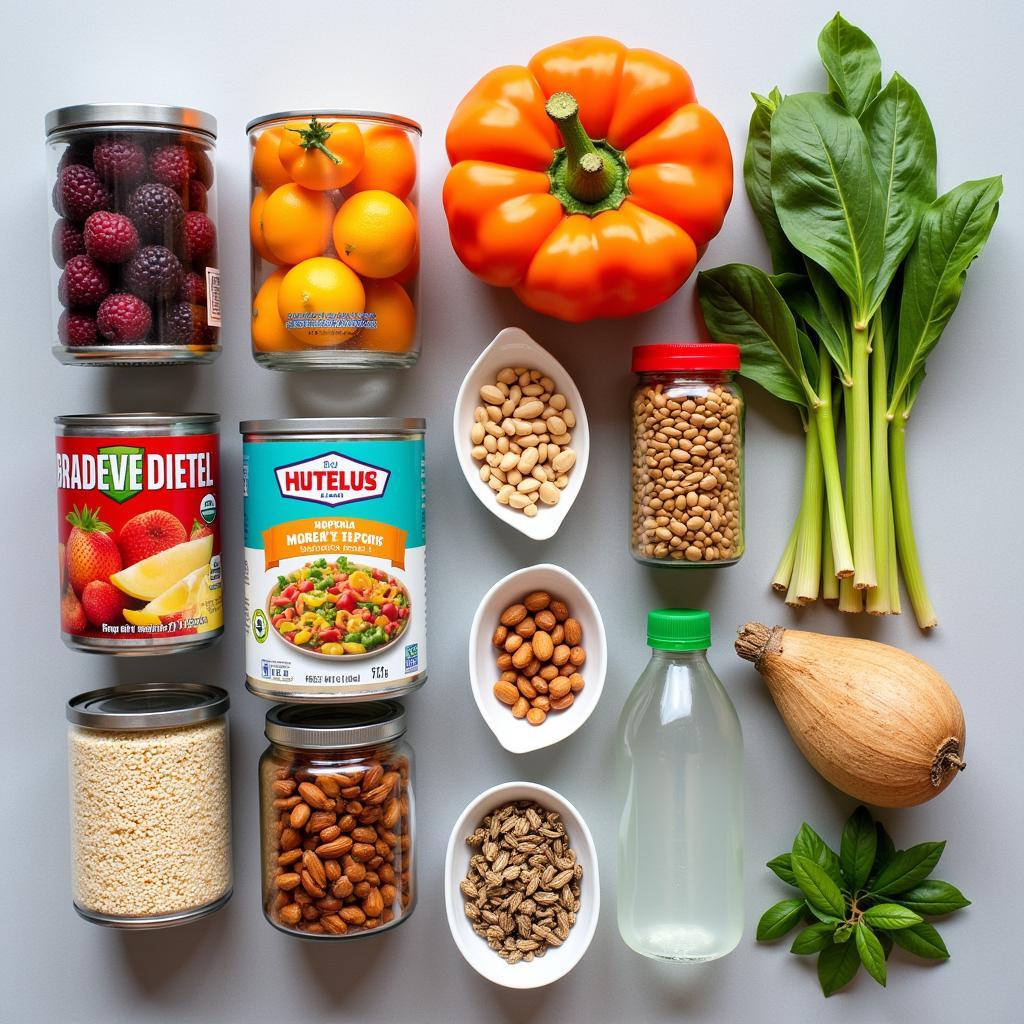Planning for emergencies is crucial, and having a well-stocked survival food kit is a top priority. While many focus on generic kits, the needs of vegetarians often go overlooked. This guide dives deep into building the perfect vegetarian survival food kit, ensuring you’re prepared for any situation without compromising your ethical and dietary choices.
Why Choose Vegetarian Survival Food Kits?
Opting for a vegetarian survival food kit isn’t just about dietary preferences; it’s about aligning your emergency preparedness with your values. Here’s why:
- Ethical Consistency: In challenging times, maintaining your ethical stance on animal consumption offers a sense of normalcy and moral grounding.
- Dietary Familiarity: Sticking to your regular diet, even during emergencies, can prevent digestive issues and provide comfort.
- Nutritional Balance: Vegetarian diets are naturally rich in fiber, vitamins, and minerals, crucial for staying healthy during stressful situations.
- Longer Shelf Life: Many vegetarian-friendly foods, like dried beans and grains, boast impressive shelf lives, making them ideal for long-term storage.
 Vegetarian Survival Food Essentials
Vegetarian Survival Food Essentials
Building Your Vegetarian Emergency Food Supply
Creating a vegetarian survival food kit isn’t about merely gathering any plant-based food. It’s about selecting items that provide comprehensive nutrition, variety, and longevity. Consider these essential categories:
1. Long-Lasting Staples: The Foundation of Your Kit
- Grains: Opt for shelf-stable options like brown rice, quinoa, oats, and pasta. These provide essential carbohydrates for energy.
- Beans and Lentils: Protein powerhouses with impressive shelf lives. Choose a variety for diverse flavors and textures.
- Nuts and Seeds: Nutrient-dense and calorie-rich, perfect for snacking or adding to meals. Look for varieties with a longer shelf life, like almonds and sunflower seeds.
- Dried Fruits: Concentrated sweetness and a good source of energy. Raisins, cranberries, and apricots are excellent choices.
2. Flavor and Nutrition Boosters: Enhancing Taste and Well-being
- Spices and Herbs: Don’t underestimate the power of flavor! Spices and herbs not only make your meals more enjoyable but can also offer health benefits.
- Salt and Pepper: Essential seasonings that enhance flavor and can be crucial for electrolyte balance.
- Vinegar and Oil: Versatile ingredients for dressings, marinades, and even pickling. Opt for shelf-stable options like apple cider vinegar and olive oil.
3. Convenience and Comfort: Making Life Easier
- Powdered Plant-Based Milk: A source of calcium and vitamin D, easily reconstituted with water.
- Trail Mix: A ready-to-eat snack that provides energy and a mix of nutrients.
- Protein Bars: Choose vegetarian options with a good balance of protein, carbohydrates, and healthy fats.
- Comfort Foods: Don’t forget to include a few treats you find comforting, like dark chocolate or dried fruit. These can provide a much-needed morale boost during tough times.
4. Water and Hydration: The Lifeline of Your Kit
- Water: The most crucial element of your kit. Store at least one gallon of water per person, per day.
- Water Filtration System: A portable water filter or purification tablets can ensure access to safe drinking water.
Essential Tips for Building and Maintaining Your Kit
- Check Expiration Dates: Rotate your food supply regularly, using older items before they expire and replacing them with fresh ones.
- Store Properly: Keep your kit in a cool, dark, and dry place to preserve freshness and extend shelf life.
- Consider Allergies and Sensitivities: When choosing food items, account for any allergies or dietary restrictions within your household.
- Practice Makes Perfect: Consider having a “practice meal” using only items from your kit to ensure you enjoy the taste and are familiar with preparation methods.
FAQs About Vegetarian Survival Food Kits
Can I use survival food for emergency kit for my vegetarian kit?
While some generic survival food kits may contain vegetarian options, it’s crucial to check the ingredients list carefully. Many rely heavily on dehydrated meat products. Building a dedicated vegetarian kit ensures you have complete control over the ingredients.
How often should I rotate the food in my kit?
Aim to rotate your food supply at least every six months to a year. Pay close attention to expiration dates and use older items before they expire.
Are there pre-made Vegetarian Survival Food Kits available?
Yes, several companies now offer pre-made vegetarian survival food kits. However, carefully research the ingredients list and nutritional information to ensure they meet your specific needs and preferences.
Be Prepared, Stay Nourished
In a world full of uncertainties, taking charge of your well-being is empowering. Building a vegetarian survival food kit isn’t just about stocking up; it’s about ensuring you can face any challenge while staying true to your values and dietary choices. Remember, being prepared is the best way to navigate the unexpected.
Need help building the perfect vegetarian survival food kit? Contact us at Phone Number: 02437655121, Email: [email protected] or visit us at 3PGH+8R9, ĐT70A, thôn Trung, Bắc Từ Liêm, Hà Nội, Việt Nam. Our team is available 24/7 to assist you.